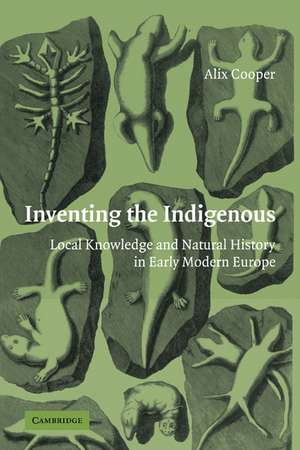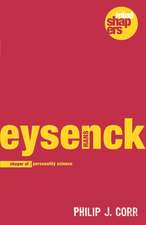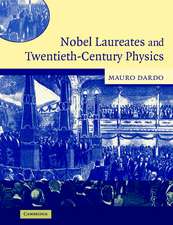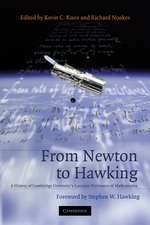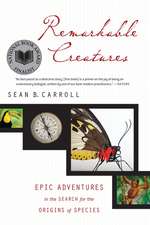Inventing the Indigenous: Local Knowledge and Natural History in Early Modern Europe
Autor Alix Cooperen Limba Engleză Paperback – 16 dec 2009
| Toate formatele și edițiile | Preț | Express |
|---|---|---|
| Paperback (1) | 202.90 lei 43-57 zile | |
| Cambridge University Press – 16 dec 2009 | 202.90 lei 43-57 zile | |
| Hardback (1) | 691.66 lei 43-57 zile | |
| Cambridge University Press – 18 mar 2007 | 691.66 lei 43-57 zile |
Preț: 202.90 lei
Nou
Puncte Express: 304
Preț estimativ în valută:
38.83€ • 40.29$ • 32.45£
38.83€ • 40.29$ • 32.45£
Carte tipărită la comandă
Livrare economică 17-31 martie
Preluare comenzi: 021 569.72.76
Specificații
ISBN-13: 9780521124010
ISBN-10: 0521124018
Pagini: 236
Dimensiuni: 152 x 229 x 14 mm
Greutate: 0.35 kg
Editura: Cambridge University Press
Colecția Cambridge University Press
Locul publicării:New York, United States
ISBN-10: 0521124018
Pagini: 236
Dimensiuni: 152 x 229 x 14 mm
Greutate: 0.35 kg
Editura: Cambridge University Press
Colecția Cambridge University Press
Locul publicării:New York, United States
Cuprins
Acknowledgements; List of illustrations; Introduction; 1. Home and the world: debating indigenous nature; 2. Field and garden: the making of local flora; 3. From rocks to riches: the quest for natural wealth; 4. The nature of the territory; 5. Problems of local knowledge; Conclusion; Works cited.
Recenzii
Review of the hardback: 'Cooper has produced a succinct and judicious study that contributes much to our understanding of the development of natural history and environmentalism in Europe. It is a powerful reminder of how patriotism and suspicions about the global economy of the day created a movement to study indigenous expressions of nature. But it also shows how such attempts, when entered into dialogue with studies of the larger natural world, led to the appropriation and silencing of the knowledge of local people. It deserves to be widely read.' Harold J. Cook, University College London
Review of the hardback: 'Finally a book that explains the rich cultural history of the "indigenous." Cooper's book is smart, highly readable, and a treasure trove of information for understanding how Early Modern Europeans viewed nature in their own backyard.' Londa Schiebinger, Stanford University
Review of the hardback: 'Inventing the Indigenous is well researched and Copper's chapter cross space and time in an attempt to trace the development and significance of local floras to the communities that developed them …The themes explored in the book are relevant for a breadth of disciplines beyond the history if science, dealing with themes of defining local difference and divergent cultural views of the expanding world in an age of exploration and discovery.' Journal of Archaeological Science
Review of the hardback: '…engaging…well-written…' The Society for the History of Natural History
Review of the hardback: 'Cooper's excellent book brings to life the European side of the 'quarrel between the 'indigenous' and the 'exotic'' and shows how productive it was for the study of nature in the early modern period.' Journal of Central European History
Review of the hardback: 'Finally a book that explains the rich cultural history of the "indigenous." Cooper's book is smart, highly readable, and a treasure trove of information for understanding how Early Modern Europeans viewed nature in their own backyard.' Londa Schiebinger, Stanford University
Review of the hardback: 'Inventing the Indigenous is well researched and Copper's chapter cross space and time in an attempt to trace the development and significance of local floras to the communities that developed them …The themes explored in the book are relevant for a breadth of disciplines beyond the history if science, dealing with themes of defining local difference and divergent cultural views of the expanding world in an age of exploration and discovery.' Journal of Archaeological Science
Review of the hardback: '…engaging…well-written…' The Society for the History of Natural History
Review of the hardback: 'Cooper's excellent book brings to life the European side of the 'quarrel between the 'indigenous' and the 'exotic'' and shows how productive it was for the study of nature in the early modern period.' Journal of Central European History
Descriere
This book shows how early modern Europeans began to take inventory of their own 'indigenous' natural worlds.
